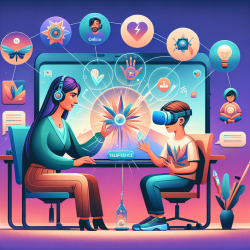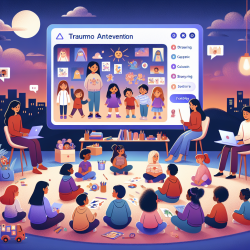During the COVID-19 pandemic, therapists faced unprecedented challenges in delivering remote therapy. Many had little to no experience with online modalities, yet they remained optimistic about the possibilities. This qualitative action research aimed to explore how arts and psychomotor therapists could effectively use the VR Health Experience to offer remote therapy.
The VR Health Experience emerged as a groundbreaking addition to traditional therapy methods. Clients were encouraged to play and experiment within the VR world, which provided numerous options and lowered the threshold for engagement. The VR environment expanded the range of therapeutic activities and held a strong appeal for clients, particularly children.
For practitioners, the study revealed several key benefits of incorporating VR into therapy:
- Enhanced Engagement: The immersive nature of VR encourages clients to participate actively, fostering a sense of play and exploration.
- Expanded Therapeutic Space: VR allows for creative and interactive experiences that are not possible in a traditional therapy setting.
- Telepresence: Therapists can be virtually present with clients, providing real-time guidance and support.
- Accessibility: VR therapy can be particularly beneficial for clients with mobility issues or those who find it challenging to attend in-person sessions.
Implementing VR in therapy requires a foundational understanding of the technology. Therapists must be comfortable setting up and navigating the VR environment, while clients should be guided on how to interact within the virtual space. Basic knowledge of VR tools is sufficient, and exploring the technology together with clients can be a valuable part of the therapeutic process.
While VR therapy shows great promise, it is not without its limitations. The study participants expressed concerns about using VR with clients who have severe mental health issues, intellectual disabilities, or very young children. Further research is needed to establish clear guidelines and best practices for these populations.
Overall, the VR Health Experience offers a powerful tool for enhancing online therapy. By embracing this innovative approach, practitioners can provide more engaging, effective, and accessible therapy to their clients.
To read the original research paper, please follow this link: VR Health Experience: A Virtual Space for Arts and Psychomotor Therapy










